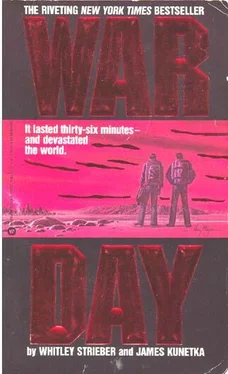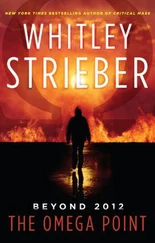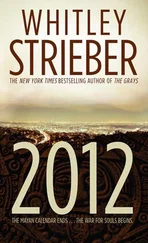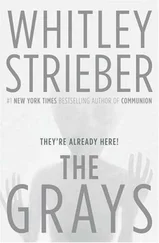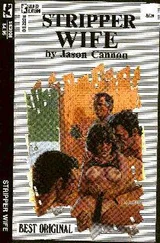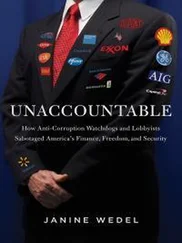“We can’t stay in this sun without water and milk.”
A woman on the platform began to cry. She wept bitterly, her fists clenched, her body bent as if the least weight would break her in the middle.
“Do you have supplies for them, Captain Howell?” Jim asked.
“There’s plenty of water. And we can give them a few gallons of milk for the babies.”
“They sure must be hungry, Bob,” his friend T.K. said.
“We don’t have a budget to provide food for detainees.”
“I hate to hear you talk like that, Bob. It makes you sound like a nasty little peacock, and I don’t think you’re really that way at all.”
“Look here, T.K., I’ve got a job to do—a job you wouldn’t do when you were asked.”
“I’m in a critical profession, Bob, as you well know. I’ll tell you something, if you can’t find a way to provide for these kids, you shouldn’t be in this job yourself. Now you find them more than water and milk. They need food. They’ve gotten little enough on the train.”
“I can’t go all out for every bunch of orphans—”
“The hell you can’t! And don’t you dare say ‘orphan’ like it was a dirty word. Kids like these are the future and honor of this country. There’s no shame in being an orphan, Bob. Look at ’em. They oughta get medals, the way they behave. Now you take care of ’em or I swear I’ll see you outa that pretty uniform inside of a week!”
The people on the platform broke out into applause. The captain promised to provide the children with food, and to let them wait for the northbound Crescent under the trees beyond the platform.
As our train pulled out, I found myself full of a mixture of anger and a curious sort of hope. I saw something in those kids that is strong. And I saw strength also in the way the passengers jumped in on their side.
The train picked up speed past Toccoa, and we moved on toward Atlanta through the warm October morning.
“T.K.” turned out to be a funeral director from Savannah. His opinion was that one of the other Southern states would probably agree to take the children. “There’s a lot more to it than you might think. And old Bob Howell’s a good man. That uniform’s gone to his head a little bit, but he’ll do his duty.”
We never found out what happened to the children.
On the road, one gets used to lost people. You see roadies all the time, walking the bus routes, following the railroad tracks, or just hiking across the countryside.
But you also encounter another type on the road, those whom it seems nothing can stop, who keep on no matter what happens to them, those who will not give up.
It isn’t that they aren’t afraid. They all have their nightmares.
But when they wake up, they find a way to go on.
No doubt the children do the same.
INTERVIEW
T. K. Allerton, Funeral Director
What happened in Savannah, the way the war hit us, was that the radio and the TV went off. I remember I was in the showroom with some clients, and all of a sudden, no Muzak. I thought, hell, the bastard’s on the fritz, and went on with my consultation.
After I’d sold the funeral I went back into the office and found Frances Tolliver trying to get the Apple to boot the database management program. She said the computer had made this funny popping noise and that was it. So I told her to call Computerland and we then discovered that the phones were out. I turned on the radio in my office and couldn’t get a sound out of it.
That was the first sign of the war in Savannah. We never got a scratch, and we’ve never suffered any fallout. We were damn confused for about a week. But we knew, we all just knew, that all hell had broken loose. A lot of people couldn’t start their cars. My broker’s line to New York was dead, and it stayed dead. There was no TV. Even the civil defense sirens weren’t working. And out at the airport—you couldn’t get anything beyond an ultralight into the air.
Of course, cars can be hot-wired, and soon people were on the road again. People went up to Charleston and down the coast toward Florida, hunting for news.
Meanwhile, things began to happen to my business. At first I just kept going, no real problems. No computer, but that was only an inconvenience for us. The phone was a pain in the neck, but we got used to that, too.
But coffins are shipped by rail, and no trains were coming in.
Plus there was the bank rush. I participated in it when the Southern & National stopped taking checks. I tried to get at my money.
The banks just handed out all the cash in Savannah and closed their doors. They were electronic basket cases from the EMP. I had about eighty thousand in the S&N, and I ended up with two thousand. Better than some did. Some people didn’t get a dime.
And there was no more FDIC insurance, although we didn’t know that at the time.
First off, I got a lot of heart attack and accident situations, where people who were on the edge died. I think about half the people with pacemakers, which was about eight hundred in Savannah, died on the spot when the EMP blew out their units. The rest of them either kept up without the pacemaker or they somehow were shielded, like sitting in a car, that plus the body itself shielded the pacemaker enough, apparently. Accidents, there were a lot of those. There were fires. People couldn’t get the fire department on the phone. In those days right after the war, we were still living as if nothing much had happened. There was no panic. There was no idea how much things were going to change.
People were strong and confident in those days. They’re good now, and we’ve learned something about just how tough we can be if we’ve got to be, here in America, but in those days we were basically happy people. There was none of this talk like there is now that the human race is sort of fundamentally defective. And of course movements like the Extinctionists and the Destructuralists didn’t exist.
You were proud of your government in those days. America was the land of the free, from sea to shining sea. Not like it is now, a jumbled-up whatnot. Do we even have a President? I don’t think the Europeans and the Japs even want us to become self-governing again. Don’t quote me on that. Or you probably can’t say it anyway—look at you, smiling at me! You can’t say that, can you?
A couple of days after the war, I had all of a sudden sixty deceased in the fridge. Sixty! We stacked them in there like logs. Later I found out how lucky Savannah was we didn’t lose our electric power. God knows what they did with the cadavers where they had no refrigeration.
All of mine were either accidents or, like I said, pacemaker. I never worked so hard in my life as I did that couple of weeks after the war. I was in real trouble. No coffins, low on formaldehyde. I had to go to the county and get body bags. Can you imagine that?
Here I was, selling the most beautiful funerals in Savannah, and all of a sudden I’m doin’ body bags.
Had to. They would’ve stunk. I was just draining away the blood and putting in a weak solution of formaldehyde. I’d display ’em in a real fine casket, and then take ’em to the cemetery in it.
When everybody went home, we’d bag ’em and bury ’em. Had to be that way.
I got a carpenter to start making me boxes. He’d use pine, and sand ’em down. Shellac ’em if he could. So for a while I was turning out a fairly good funeral again. The boxes were just boxes, but the smell of uncured pine is a good smell. I’ve got it in my brain, that smell.
It was about six weeks after the war that we got a visit from the National Guard in Atlanta. They called a meeting of all the VFW and the American Legion and the Sons of the Confederacy and the Rotary Club and the Lions and all those clubs, down at the Hilton. General Trowbridge was the speaker. He announced that an organization called the Georgia Patrol had been formed by the Governor, and this group was supposed to keep refugees out of the state. I thought that was awfully harsh. I don’t have anything against people who need help. But then he started talking about radiation poisoning and looters, and things like people with rabies, and fleas carrying unknown diseases, and all of that. Then he tells about the problem with medical supplies, how the plants have been damaged or are irradiated. Most of them were in the Northeast, and those that weren’t are hardly shipping to Georgia, even if they are operating, and I see that we really are in a hell of a mess.
Читать дальше
